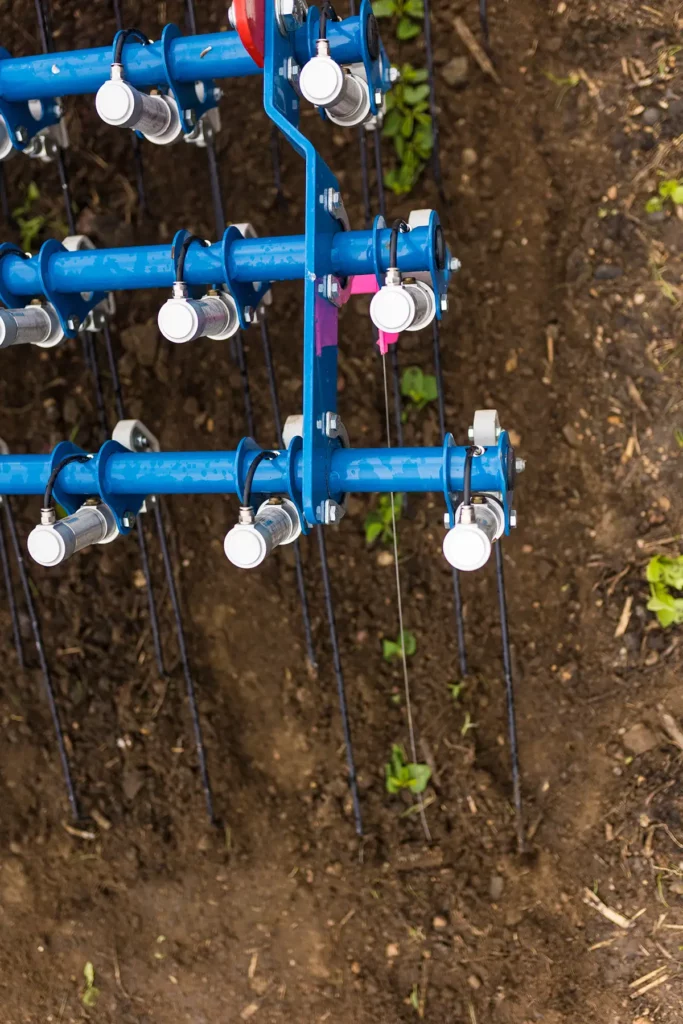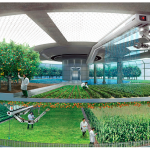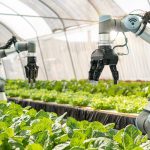Are you curious about how farm equipment is tailored to meet the unique needs of organic farmers? If you’re venturing into organic farming or simply want to understand its nuances, this is the right place for you.
Organic farming is more than just a trend; it’s a commitment to nurturing the earth and producing healthier food. But how does this commitment translate into the tools and machinery used on the farm? In this blog, we’ll uncover what sets organic farm equipment apart from conventional options.
You’ll learn about the innovations designed to support sustainable practices, and how these tools can make your farming operations more efficient and eco-friendly. Ready to dive into the world of organic farming tools and discover what makes them special? Keep reading to explore the exciting differences that could transform your agricultural journey.
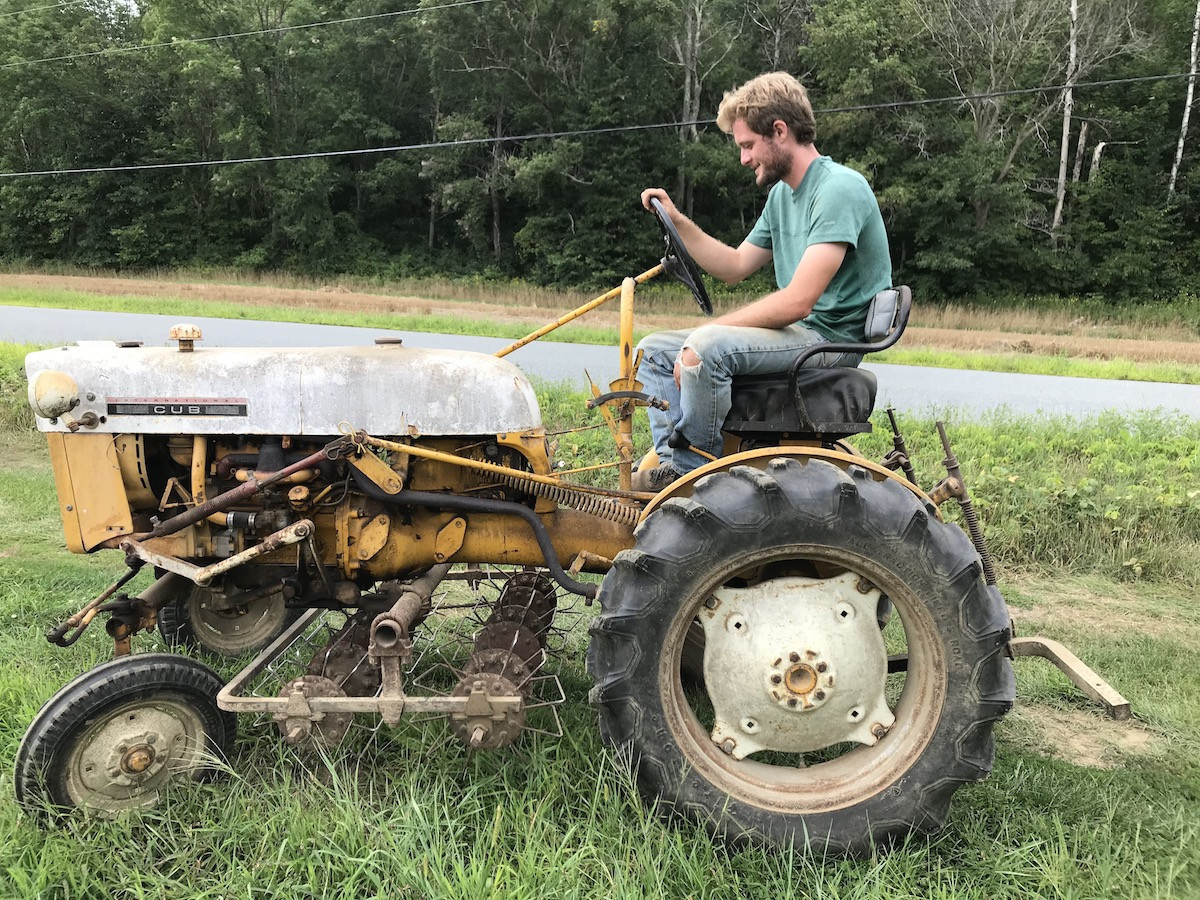
Organic Farming Essentials
Organic farming requires special equipment tailored to the unique needs of sustainable agriculture. Tools like rotary hoes and flame weeders are essential for maintaining soil health and controlling weeds without chemicals. These tools help organic farmers work effectively while preserving the environment.
Organic farming isn’t just about using natural inputs. It’s a holistic approach that demands specific tools and equipment tailored to its unique requirements. Organic farmers often find themselves asking: What makes their equipment different? The answer lies in the essentials that cater to their distinct needs. ###Soil Health Management
Maintaining soil health is crucial for organic farming. Unlike conventional farming, organic methods rely heavily on natural soil amendments. Your equipment should facilitate composting and cover cropping. Tools like compost turners and seed drills are essential. These help you maintain nutrient-rich soil without synthetic fertilizers. ###Weed Control Techniques
Organic farmers face the challenge of weeds without chemical herbicides. Your equipment needs to support mechanical and thermal weed control. Consider using flame weeders and cultivators. They offer effective ways to manage weeds while preserving soil integrity. Do you think your current tools suffice for organic weed control? ###Pest And Disease Management
Managing pests without synthetic pesticides requires innovative solutions. You need equipment that supports biological control and physical barriers. Tools such as insect netting and row covers are invaluable. They protect crops from pests while adhering to organic standards. Have you explored these eco-friendly options? ###Efficient Water Usage
Water management is a fundamental aspect of organic farming. Efficient irrigation systems are vital. Drip irrigation systems can help minimize water waste. They deliver water directly to the plant roots, promoting healthy growth. How are you optimizing water usage on your farm? ###Crop Diversification Strategies
Organic farming thrives on diversity. You should have equipment that accommodates multiple crops. Multi-row planters and adjustable harvesters can help. They support diverse planting and harvesting needs, enhancing productivity. Is your farm equipped for crop diversification? ###Environmentally-friendly Equipment
Organic farming principles extend to the equipment used. Choosing tools with minimal environmental impact is key. Solar-powered machinery and electric tractors are becoming popular. They reduce reliance on fossil fuels and align with organic values. Are you ready to embrace greener technology? Embracing organic farming essentials means adapting your equipment to align with sustainable practices. Evaluate if your current tools are up to the challenge. Could upgrading your equipment make your organic farming journey more successful?
Sustainable Tools And Machinery
Organic farming demands sustainability. This requires special tools and machinery. Sustainable tools help reduce environmental impact. They support organic farming practices. They also enhance productivity and maintain soil health. Let’s explore the different aspects of sustainable tools and machinery for organic farmers.
Eco-friendly Materials
Sustainable farm equipment uses eco-friendly materials. These materials minimize harm to nature. They include biodegradable plastics and recycled metals. These options reduce waste and pollution. The focus is on creating durable yet eco-conscious tools.
Energy Efficiency
Energy-efficient machinery saves costs and energy. Solar-powered tractors are a great example. They reduce reliance on fossil fuels. Electric-powered tools also offer efficient solutions. Farmers can choose machines with low energy consumption.
Soil Health Preservation
Organic farming values soil health. Sustainable machinery helps preserve it. No-till seeders avoid disturbing soil layers. They maintain soil structure and fertility. Tools that minimize soil compaction are also essential. These tools protect the soil’s natural balance.
Water Conservation
Water is vital for farming. Sustainable equipment supports water conservation. Drip irrigation systems use water wisely. They deliver water directly to plant roots. This reduces evaporation and water wastage. Efficient sprinklers also contribute to saving water.
Low Maintenance
Organic farmers need reliable equipment. Sustainable tools often require less maintenance. This saves time and resources. Durable materials ensure longevity. Farmers can focus more on their crops and less on repairs.
Adaptability To Organic Practices
Sustainable machinery adapts to organic methods. It supports crop rotation and polyculture. Multi-functional tools serve various purposes. They cater to the diverse needs of organic farming. This flexibility is crucial for organic farmers.
Innovative Equipment For Soil Health
Organic farmers use equipment that focuses on preserving soil health. Tools differ by being environmentally friendly and reducing chemical use. Innovative machinery helps maintain nutrient-rich soil, supporting sustainable farming practices.
Innovative equipment is transforming how organic farmers maintain and improve soil health. As an organic farmer, you understand that healthy soil is the foundation of a thriving farm. But what if you could enhance this foundation with cutting-edge tools specifically designed for organic practices? Let’s explore some of the most exciting innovations making waves in the world of organic farming.Advanced Soil Sensors
Advanced soil sensors provide you with real-time data about your soil’s condition. These tools can measure moisture, pH levels, and nutrient content, empowering you to make informed decisions about irrigation and fertilization. Imagine being able to adjust your farming techniques based on precise data, reducing waste and enhancing soil health.Precision Seeders
Precision seeders are game-changers for organic farmers. They allow you to plant seeds at exact depths and spacing, promoting optimal growth without overuse of resources. This precision helps maintain soil integrity, ensuring that every seed has the best chance to thrive while preserving the natural structure of your soil.Compost Turners
Compost turners are essential for creating rich, organic matter to replenish your soil. These machines efficiently aerate compost piles, speeding up decomposition and producing high-quality compost. With better compost, you provide your soil with essential nutrients, improving its structure and fertility.No-till Drills
No-till drills are perfect for minimizing soil disturbance and maintaining healthy soil ecosystems. By planting seeds without traditional plowing, you preserve soil structure, retain moisture, and reduce erosion. Have you considered how no-till practices could revolutionize your approach to soil conservation?Cover Crop Rollers
Cover crop rollers offer a sustainable way to manage cover crops, which are vital for soil health. These tools gently flatten cover crops, leaving a protective layer on the soil surface. This method not only prevents erosion but also improves water retention and adds organic matter back into the soil. Innovative farm equipment is more than just a trend; it’s an opportunity to enhance your organic farming practices. By integrating these tools, you can improve soil health, boost productivity, and sustain the environment. Which of these innovations will you bring to your farm?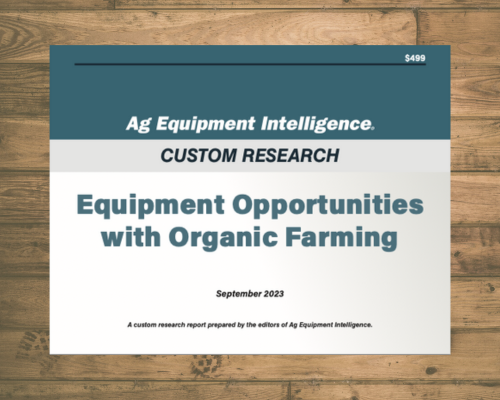
Cost And Accessibility Challenges
Organic farming demands specialized equipment. These tools often differ from conventional ones. Organic farmers face unique challenges. Cost and accessibility stand out. Many organic tools are not mass-produced. This results in higher prices. Limited availability adds to the challenge. Finding the right equipment becomes a task.
Cost Of Organic Farm Equipment
Organic equipment often costs more. Smaller production runs contribute to this. Manufacturers don’t produce them in bulk. This raises the price per unit. Farmers must budget carefully. Investing in quality tools is crucial. Yet, it strains financial resources. Some farmers find the costs prohibitive.
Accessibility Challenges
Accessing organic equipment is tough. Stores rarely stock these items. Farmers rely on specialized suppliers. Shipping costs add to expenses. Some regions lack suppliers entirely. Farmers in remote areas struggle. They may face delays in acquiring tools. This impacts their farming operations.
Impact On Small-scale Farmers
Small-scale farmers feel the pinch. They often have limited budgets. The high cost of equipment affects them. Some may delay purchases. This can hinder their productivity. Accessibility issues compound the problem. They may need to travel far for tools. This adds time and expense.
Innovative Solutions
Farmers seek innovative solutions. Many turn to co-operatives. Sharing equipment reduces costs. Some farmers build their own tools. Creativity and resourcefulness are key. These solutions can ease cost burdens. They also improve equipment access.
Conclusion
Organic farming needs special equipment. This equipment supports eco-friendly practices. It helps maintain healthy soil. It reduces harm to the environment. Organic tools are built for efficiency. They promote sustainability. Farmers choose these tools for better crop growth. These machines require less energy.
They are easier to handle. Organic farming equipment is different. It focuses on natural methods. It respects nature’s balance. Farmers benefit from using these tools. Better yields, healthier crops. Choosing the right equipment is crucial. Organic farming thrives with the right tools.
Embrace the change. Start using eco-friendly farm equipment today.

